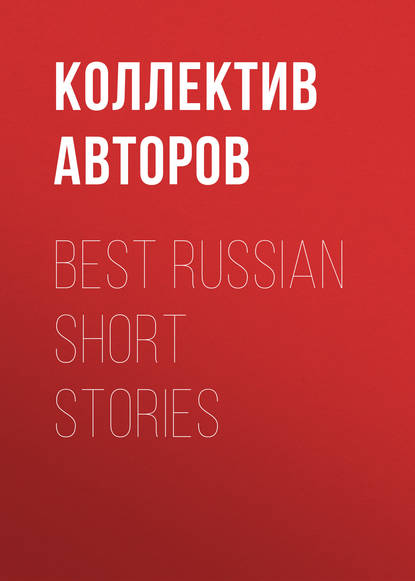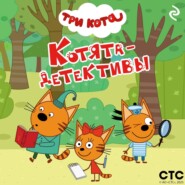По всем вопросам обращайтесь на: info@litportal.ru
(©) 2003-2025.
✖
Best Russian Short Stories
Настройки чтения
Размер шрифта
Высота строк
Поля
"No, I am not hot-tempered, but I tell the truth and think. Yes, he will still get a bloody nose from me. I will complain to the Chief. We will see then!" And Vasily did complain to the Chief.
Once the Chief came to inspect the line. Three days later important personages were coming from St. Petersburg and would pass over the line. They were conducting an inquiry, so that previous to their journey it was necessary to put everything in order. Ballast was laid down, the bed was levelled, the sleepers carefully examined, spikes driven in a bit, nuts screwed up, posts painted, and orders given for yellow sand to be sprinkled at the level crossings. The woman at the neighbouring hut turned her old man out to weed. Semyon worked for a whole week. He put everything in order, mended his kaftan, cleaned and polished his brass plate until it fairly shone. Vasily also worked hard. The Chief arrived on a trolley, four men working the handles and the levers making the six wheels hum. The trolley travelled at twenty versts an hour, but the wheels squeaked. It reached Semyon's hut, and he ran out and reported in soldierly fashion. All appeared to be in repair.
"Have you been here long?" inquired the Chief.
"Since the second of May, your Excellency."
"All right. Thank you. And who is at hut No. 164?"
The traffic inspector (he was travelling with the Chief on the trolley) replied: "Vasily Spiridov."
"Spiridov, Spiridov… Ah! is he the man against whom you made a note last year?"
"He is."
"Well, we will see Vasily Spiridov. Go on!" The workmen laid to the handles, and the trolley got under way. Semyon watched it, and thought, "There will be trouble between them and my neighbour."
About two hours later he started on his round. He saw some one coming along the line from the cutting. Something white showed on his head. Semyon began to look more attentively. It was Vasily. He had a stick in his hand, a small bundle on his shoulder, and his cheek was bound up in a handkerchief.
"Where are you off to?" cried Semyon.
Vasily came quite close. He was very pale, white as chalk, and his eyes had a wild look. Almost choking, he muttered: "To town – to Moscow – to the head office."
"Head office? Ah, you are going to complain, I suppose. Give it up!
Vasily Stepanych, forget it."
"No, mate, I will not forget. It is too late. See! He struck me in the face, drew blood. So long as I live I will not forget. I will not leave it like this!"
Semyon took his hand. "Give it up, Stepanych. I am giving you good advice. You will not better things…"
"Better things! I know myself I shan't better things. You were right about Fate. It would be better for me not to do it, but one must stand up for the right." "But tell me, how did it happen?"
"How? He examined everything, got down from the trolley, looked into the hut. I knew beforehand that he would be strict, and so I had put everything into proper order. He was just going when I made my complaint. He immediately cried out: 'Here is a Government inquiry coming, and you make a complaint about a vegetable garden. Here are privy councillors coming, and you annoy me with cabbages!' I lost patience and said something – not very much, but it offended him, and he struck me in the face. I stood still; I did nothing, just as if what he did was perfectly all right. They went off; I came to myself, washed my face, and left."
"And what about the hut?"
"My wife is staying there. She will look after things. Never mind about their roads."
Vasily got up and collected himself. "Good-bye, Ivanov. I do not know whether I shall get any one at the office to listen to me."
"Surely you are not going to walk?"
"At the station I will try to get on a freight train, and to-morrow I shall be in Moscow."
The neighbours bade each other farewell. Vasily was absent for some time. His wife worked for him night and day. She never slept, and wore herself out waiting for her husband. On the third day the commission arrived. An engine, luggage-van, and two first-class saloons; but Vasily was still away. Semyon saw his wife on the fourth day. Her face was swollen from crying and her eyes were red.
"Has your husband returned?" he asked. But the woman only made a gesture with her hands, and without saying a word went her way.
Semyon had learnt when still a lad to make flutes out of a kind of reed. He used to burn out the heart of the stalk, make holes where necessary, drill them, fix a mouthpiece at one end, and tune them so well that it was possible to play almost any air on them. He made a number of them in his spare time, and sent them by his friends amongst the freight brakemen to the bazaar in the town. He got two kopeks apiece for them. On the day following the visit of the commission he left his wife at home to meet the six o'clock train, and started off to the forest to cut some sticks. He went to the end of his section – at this point the line made a sharp turn – descended the embankment, and struck into the wood at the foot of the mountain. About half a verst away there was a big marsh, around which splendid reeds for his flutes grew. He cut a whole bundle of stalks and started back home. The sun was already dropping low, and in the dead stillness only the twittering of the birds was audible, and the crackle of the dead wood under his feet. As he walked along rapidly, he fancied he heard the clang of iron striking iron, and he redoubled his pace. There was no repair going on in his section. What did it mean? He emerged from the woods, the railway embankment stood high before him; on the top a man was squatting on the bed of the line busily engaged in something. Semyon commenced quietly to crawl up towards him. He thought it was some one after the nuts which secure the rails. He watched, and the man got up, holding a crow-bar in his hand. He had loosened a rail, so that it would move to one side. A mist swam before Semyon's eyes; he wanted to cry out, but could not. It was Vasily! Semyon scrambled up the bank, as Vasily with crow-bar and wrench slid headlong down the other side.
"Vasily Stepanych! My dear friend, come back! Give me the crow-bar. We will put the rail back; no one will know. Come back! Save your soul from sin!"
Vasily did not look back, but disappeared into the woods.
Semyon stood before the rail which had been torn up. He threw down his bundle of sticks. A train was due; not a freight, but a passenger-train. And he had nothing with which to stop it, no flag. He could not replace the rail and could not drive in the spikes with his bare hands. It was necessary to run, absolutely necessary to run to the hut for some tools. "God help me!" he murmured.
Semyon started running towards his hut. He was out of breath, but still ran, falling every now and then. He had cleared the forest; he was only a few hundred feet from his hut, not more, when he heard the distant hooter of the factory sound – six o'clock! In two minutes' time No. 7 train was due. "Oh, Lord! Have pity on innocent souls!" In his mind Semyon saw the engine strike against the loosened rail with its left wheel, shiver, careen, tear up and splinter the sleepers – and just there, there was a curve and the embankment seventy feet high, down which the engine would topple – and the third-class carriages would be packed … little children… All sitting in the train now, never dreaming of danger. "Oh, Lord! Tell me what to do!.. No, it is impossible to run to the hut and get back in time."
Semyon did not run on to the hut, but turned back and ran faster than before. He was running almost mechanically, blindly; he did not know himself what was to happen. He ran as far as the rail which had been pulled up; his sticks were lying in a heap. He bent down, seized one without knowing why, and ran on farther. It seemed to him the train was already coming. He heard the distant whistle; he heard the quiet, even tremor of the rails; but his strength was exhausted, he could run no farther, and came to a halt about six hundred feet from the awful spot. Then an idea came into his head, literally like a ray of light. Pulling off his cap, he took out of it a cotton scarf, drew his knife out of the upper part of his boot, and crossed himself, muttering, "God bless me!"
He buried the knife in his left arm above the elbow; the blood spurted out, flowing in a hot stream. In this he soaked his scarf, smoothed it out, tied it to the stick and hung out his red flag.
He stood waving his flag. The train was already in sight. The driver would not see him – would come close up, and a heavy train cannot be pulled up in six hundred feet.
And the blood kept on flowing. Semyon pressed the sides of the wound together so as to close it, but the blood did not diminish. Evidently he had cut his arm very deep. His head commenced to swim, black spots began to dance before his eyes, and then it became dark. There was a ringing in his ears. He could not see the train or hear the noise. Only one thought possessed him. "I shall not be able to keep standing up. I shall fall and drop the flag; the train will pass over me. Help me, oh Lord!"
All turned black before him, his mind became a blank, and he dropped the flag; but the blood-stained banner did not fall to the ground. A hand seized it and held it high to meet the approaching train. The engineer saw it, shut the regulator, and reversed steam. The train came to a standstill.
People jumped out of the carriages and collected in a crowd. They saw a man lying senseless on the footway, drenched in blood, and another man standing beside him with a blood-stained rag on a stick.
Vasily looked around at all. Then, lowering his head, he said: "Bind me. I tore up a rail!"
THE DARLING
BY ANTON P. CHEKOV
Olenka, the daughter of the retired collegiate assessor Plemyanikov, was sitting on the back-door steps of her house doing nothing. It was hot, the flies were nagging and teasing, and it was pleasant to think that it would soon be evening. Dark rain clouds were gathering from the east, wafting a breath of moisture every now and then.
Kukin, who roomed in the wing of the same house, was standing in the yard looking up at the sky. He was the manager of the Tivoli, an open-air theatre.
"Again," he said despairingly. "Rain again. Rain, rain, rain! Every day rain! As though to spite me. I might as well stick my head into a noose and be done with it. It's ruining me. Heavy losses every day!" He wrung his hands, and continued, addressing Olenka: "What a life, Olga Semyonovna! It's enough to make a man weep. He works, he does his best, his very best, he tortures himself, he passes sleepless nights, he thinks and thinks and thinks how to do everything just right. And what's the result? He gives the public the best operetta, the very best pantomime, excellent artists. But do they want it? Have they the least appreciation of it? The public is rude. The public is a great boor. The public wants a circus, a lot of nonsense, a lot of stuff. And there's the weather. Look! Rain almost every evening. It began to rain on the tenth of May, and it's kept it up through the whole of June. It's simply awful. I can't get any audiences, and don't I have to pay rent? Don't I have to pay the actors?"
The next day towards evening the clouds gathered again, and Kukin said with an hysterical laugh:
"Oh, I don't care. Let it do its worst. Let it drown the whole theatre, and me, too. All right, no luck for me in this world or the next. Let the actors bring suit against me and drag me to court. What's the court? Why not Siberia at hard labour, or even the scaffold? Ha, ha, ha!"
It was the same on the third day.
Olenka listened to Kukin seriously, in silence. Sometimes tears would rise to her eyes. At last Kukin's misfortune touched her. She fell in love with him. He was short, gaunt, with a yellow face, and curly hair combed back from his forehead, and a thin tenor voice. His features puckered all up when he spoke. Despair was ever inscribed on his face. And yet he awakened in Olenka a sincere, deep feeling.
She was always loving somebody. She couldn't get on without loving somebody. She had loved her sick father, who sat the whole time in his armchair in a darkened room, breathing heavily. She had loved her aunt, who came from Brianska once or twice a year to visit them. And before that, when a pupil at the progymnasium, she had loved her French teacher. She was a quiet, kind-hearted, compassionate girl, with a soft gentle way about her. And she made a very healthy, wholesome impression. Looking at her full, rosy cheeks, at her soft white neck with the black mole, and at the good naïve smile that always played on her face when something pleasant was said, the men would think, "Not so bad," and would smile too; and the lady visitors, in the middle of the conversation, would suddenly grasp her hand and exclaim, "You darling!" in a burst of delight.
The house, hers by inheritance, in which she had lived from birth, was located at the outskirts of the city on the Gypsy Road, not far from the Tivoli. From early evening till late at night she could hear the music in the theatre and the bursting of the rockets; and it seemed to her that Kukin was roaring and battling with his fate and taking his chief enemy, the indifferent public, by assault. Her heart melted softly, she felt no desire to sleep, and when Kukin returned home towards morning, she tapped on her window-pane, and through the curtains he saw her face and one shoulder and the kind smile she gave him.
He proposed to her, and they were married. And when he had a good look of her neck and her full vigorous shoulders, he clapped his hands and said:
"You darling!"

















